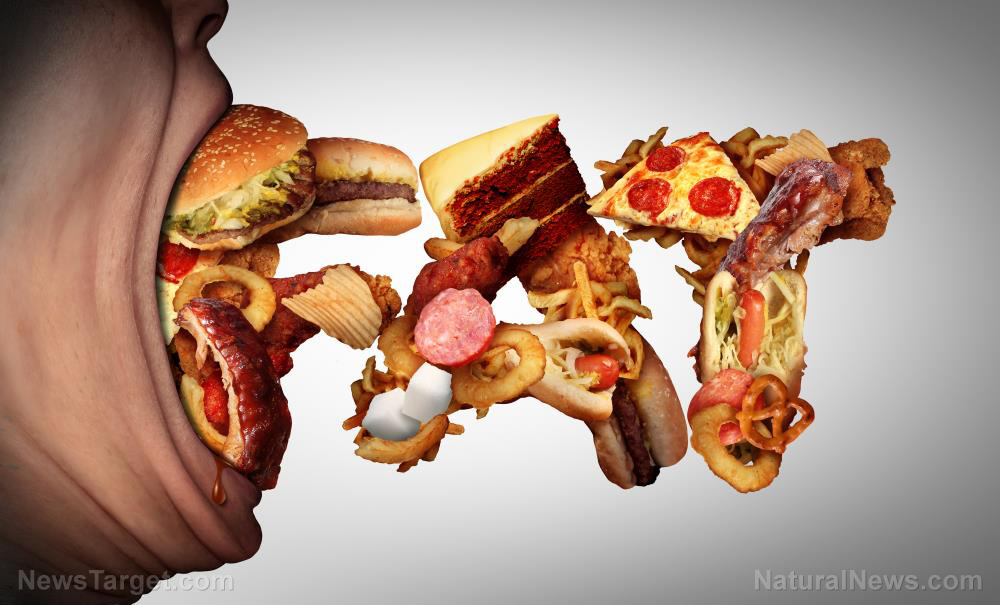Knowledge IS power: Teaching teens about junk food promotes healthy eating habits
09/17/2019 / By Isabelle Z.

What if getting your teens to eat healthier was as easy as teaching them more about junk food and its marketing tactics? If you’re thinking that would never work, think again: A new study has shown that educating teens about junk food and how ads influence them can cut their junk food buying habits by as much as 31 percent.
That was the surprising finding made by researchers from the University of Chicago Booth School of Business. If there’s one thing teenagers hate, it’s feeling like adults are manipulating them into doing something that they want them to do, so the study used this feeling to discourage them from buying and eating unhealthy foods.
In their study, they divided more than 500 eighth-graders into two groups. The first group was given an expose-style article outlining how big food companies manipulate them into buying junk food. It painted these firms as the manipulative marketers they are, explaining how they target young people, and those with lower incomes in particular, and try to get them hooked on these foods. The second group was given an article about the benefits of eating healthy foods.
After reading the articles, those who had read the ones about the predatory marketing practices of food companies chose fewer junk foods the next day and opted for water rather than soda. A year later, they found that those who had been exposed to the expose chose healthier options for the remaining three months of their school year. Boys were particularly impacted, cutting their junk food intake by 31 percent compared to the group who read about healthy eating.
The study’s coauthor, Christopher Bryan, explained it nicely, stating: “Food marketing is deliberately designed to create positive emotional associations with junk food, to connect it with feelings of happiness and fun.??”What we’ve done is turn that around on the food marketers by exposing this manipulation to teenagers, triggering their natural strong aversion to being controlled by adults. If we could make more kids aware of that, it might make a real difference.”
Their findings were published in the journal Nature Human Behavior.
Raising awareness about manipulative marketing could save countless people’s health
It’s interesting that teenagers’ contempt for being controlled by adults carried more weight than any desire to be healthy, but the bottom line is that it got them to eat healthier.
This study indicates that exposing more young people to the deceptive practices of junk food marketers could go surprisingly far in influencing their eating habits. Unfortunately, junk food ads work remarkably well on teens, with watching just one extra ad for junk food on TV being correlated with the consumption of 350 extra calories from foods high in sugar, fat and salt, according to a study by Cancer Research UK.
It’s also worth noting that junk food ads target Latino and African American kids disproportionately. A study from the University of Connecticut’s Rudd Center for Food Policy & Obesity found that black children see 86 percent more ads on TV for sugary drinks, fast food, unhealthy snacks and candy than their white peers.
Is it any surprise that 21 percent of American teens are obese and that sugary drinks account for 10 percent of their total caloric intake? Are these really the habits that we want our children to start so early in life? It’s time to wake everyone up to the deceptive marketing practices of not only junk food manufacturers and fast food restaurants but also pharmaceutical companies and vaccine makers. Knowledge really is power, especially when it comes to your health!
Sources for this article include:
Tagged Under: added sugars, advertisements, deception, eating habits, fast food, fight obesity, food marketing, grocery, manipulation, marketing ploy, nutrition, obese, parenting, prevention, teenagers, Teens
RECENT NEWS & ARTICLES
COPYRIGHT © 2017 ASPARTAME NEWS



















